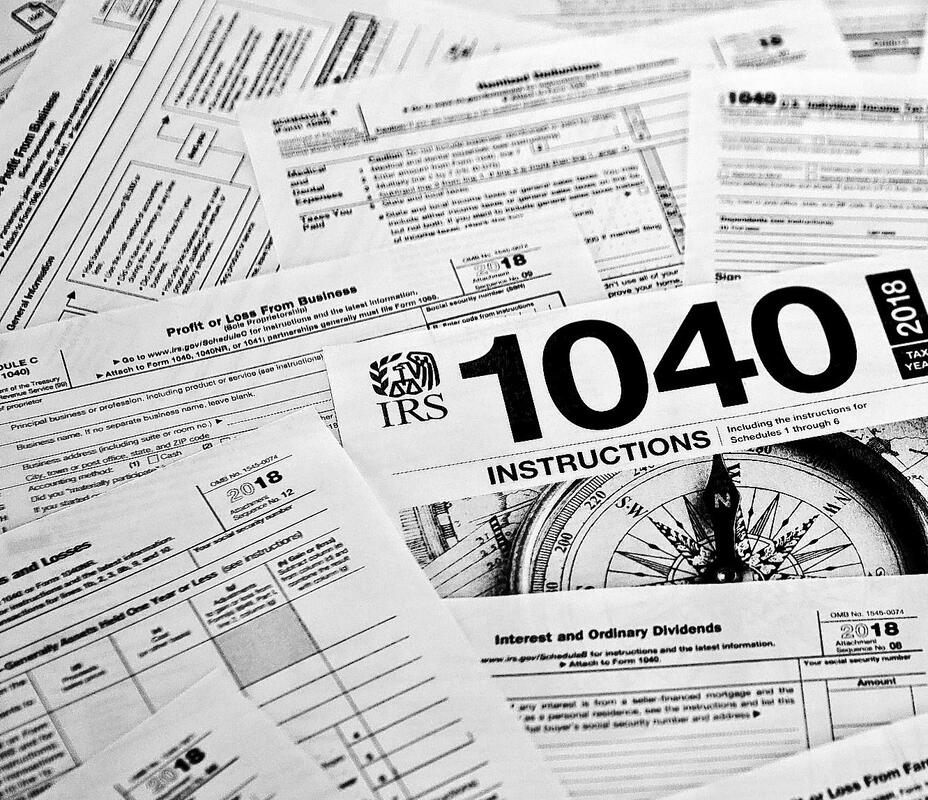With hours to go before Monday's midnight tax-filing deadline, the IRS online account system was down, so a message was posted for users that said: "We're sorry, due to incresed traffic, this service may be temporarily unavailable."And , that wasn't my typo for the word increased. The note to taxpayers misspelled increased.
I'm assuming someone was so rushed to type the notification that they introduced an error, providing a metaphor for the way we taxpayers feel — overwhelmed, frustrated and mad as hell.
That typo symbolized a U.S. tax filing system that is faulty, with a weary staff shouldering an enormous workload.
People pay to get their tax returns prepared because the 1040 form — and most IRS schedules and forms — are incomprehensible to a normal person. You can't easily reach a live person at the IRS to ask even the most basic question. Millions of returns are stuck in a backlog, fueling the wrath of folks akin to those in torment in the fifth circle of hell in Dante's "Inferno."
Why wouldn't the IRS have enough capacity to handle last-minute inquiries from taxpayers trying to find the information they need to file their returns? People were redirected to another system to make tax payments, with a warning that if they couldn't use the IRS online payment system, they were still responsible for getting their payments in on time.
What, by carrier pigeon? In the past, many U.S. Postal Service offices around the country were open until midnight on the April deadline, with staff sometimes lined up outside to take and postmark tax returns from people who didn't need to leave their vehicles.
How many folks greeted with that online message about timely payments just gave up and didn't file or pay? Google Trends reported that the top search on tax day each year is: "How do I file for a tax extension?"
Of course there was going to be increased traffic on the big day, which is something the agency should be able to plan for to avoid disruptions in access. And it's not just procrastinators trying to look at their accounts. I've heard from dozens of readers who were having trouble e-filing leading up to the April 18 deadline.
IRS Commissioner Chuck Rettig posted a message to taxpayers on April 18.
"Millions of returns are awaiting processing, and billions in refunds are still to be distributed," he wrote. "This has been a season of frustration for many people, including those still waiting for us to process their tax returns from last year, those who filed amended returns, those who face delays and those who tried calling our phone lines and faced long wait times — if they could get through at all. This is frustrating for all of us at the IRS as well."
In large part, Rettig blamed the agency's insufficient budget, which has dropped 15% in real terms over the last decade. It's not just about the budget deficiency. The problem starts with the entire IRS filing system, which is so impenetrable that millions of Americans feel like they have no choice but to use paid tax software to file their returns.
But what if the IRS started the filing process for you?
"Every year when your W-2s and 1099s come in the mail, your employer has already sent a copy to the government," Sen. Elizabeth Warren, D-Mass., said in a video tweet about the tax prep industry posted days before the tax deadline. "So it's no secret. The government already knows how much you made before you file your taxes. So instead of you doing all the scrambling and calculating and late nights in April, the IRS could just send you a pre-filled out tax form based on information they already have." Warren said people could just confirm the information and then send the tax form back.
Easy, right?
But not as lucrative for the companies that profit handsomely from the complexity of the forms.
If there was ever a time to push free filing for all, it's now. Yes, the pandemic pushed an already broken system to the brink, but the commercialization of tax preparation is a circle of hell from which we need salvation.



 RSS Feed
RSS Feed